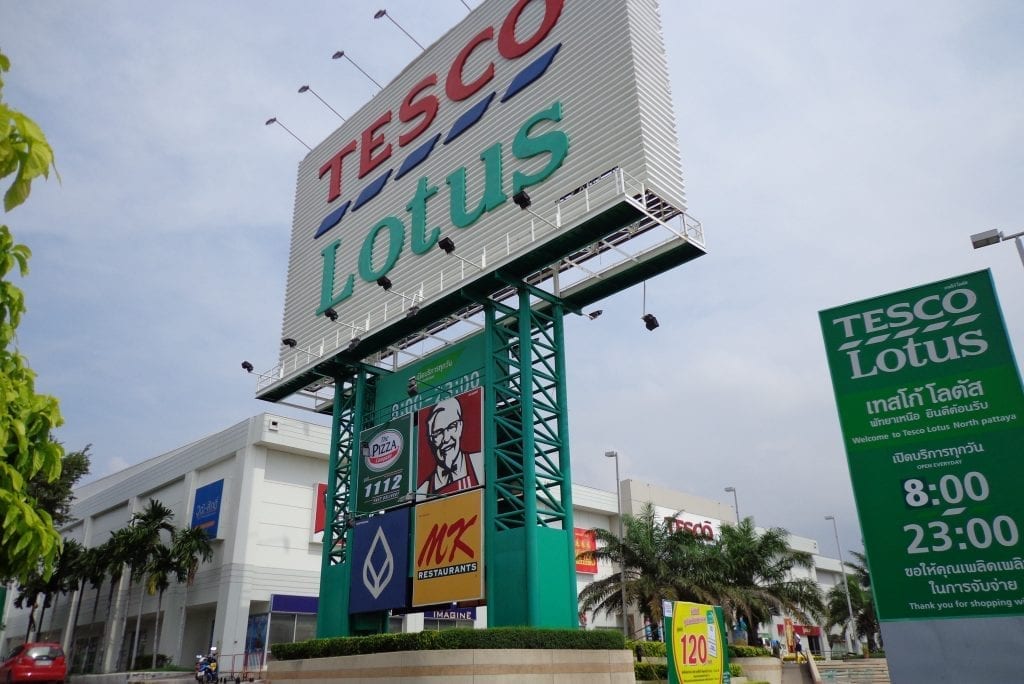
Tesco Thailand like-for-like sales are growing “strongly” according to the UK parent’s preliminary results released Thursday.
Asian commentary took up a very small part of the larger company’s announcement, however the figures showed a dramatic slowdown in sales growth during the second half of the year to February 25, compared with the first half.
Combined Thailand and Malaysian sales rose 3.3 per cent and 3 per cent respectively in the first two quarters, but plunged to a growth of just 0.4 per cent and 0.5 per cent in the third and fourth quarters. Third quarter sales were affected by Thais mourning the passing of the King in October together with a flat economy in Malaysia. The quarters also compared against strong growth period the preceding year.
By half-year, Asian sales grew by 3.2 per cent and 0.4 per cent, giving a full-year growth rate of 1.8 per cent.
Of Thailand, Tesco CEO David Lewis said like-for-like sales grew strongly in Thailand as the company invested in both lowering prices and improving its fresh food proposition.
“We grew market share and were pleased to retain our number one position for customers for brand and trust,” he said.
In Malaysia, Tesco’s top-line sales growth was held back by weak consumer spending across the market and a trend away from large stores towards convenience shopping, where the retailer is currently under-represented.
Total international sales grew by 2.1 per cent at constant exchange rates, including a 0.8 per cent new-store contribution driven by store openings in Thailand which more than offset the impact of store closures, primarily in Europe.
“International sales growth weakened in the second half due to an increasingly competitive environment in Europe, particularly Poland, and as we annualised a strong performance last year in Asia.”
Global success
Tesco’s global group sales rose 4.3 per cent to £49.9 billion, while in the UK like-for-like sales rose 0.9 per cent – the first reported full-year growth since 2009/10.
The company ended the year with net debt of £3.7 billion, down 27 per cent after £1.9 billion of debt was repaid during the year.
Lewis says the company is well on track with its reformation program.
“We are ahead of where we expected to be at this stage, having made good progress on all six of the strategic drivers we shared in October. We are confident that we can build on this strong performance in the year ahead, making further progress towards our medium-term ambitions.
“Today, our prices are lower, our range is simpler and our service and availability have never been better. Our exclusive fresh food brands have strengthened our value proposition and our food quality perception is at its highest level for five years. At the same time, we have increased profits, generated more cash and significantly reduced debt,” Lewis concluded.